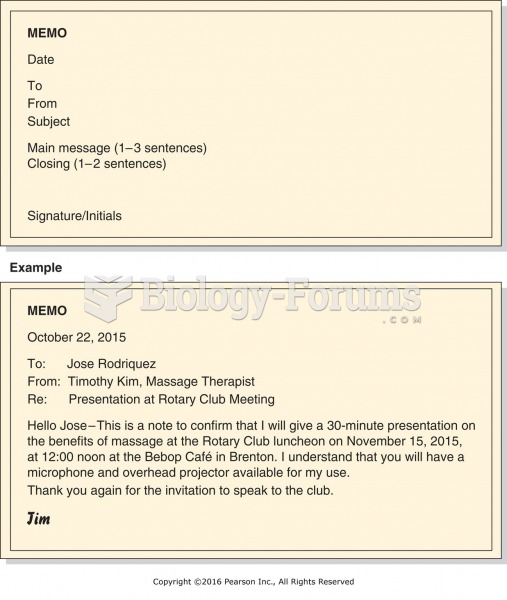|
|
|
Green tea is able to stop the scent of garlic or onion from causing bad breath.
There are over 65,000 known species of protozoa. About 10,000 species are parasitic.
It is difficult to obtain enough calcium without consuming milk or other dairy foods.
About 80% of major fungal systemic infections are due to Candida albicans. Another form, Candida peritonitis, occurs most often in postoperative patients. A rare disease, Candida meningitis, may follow leukemia, kidney transplant, other immunosuppressed factors, or when suffering from Candida septicemia.
Certain topical medications such as clotrimazole and betamethasone are not approved for use in children younger than 12 years of age. They must be used very cautiously, as directed by a doctor, to treat any child. Children have a much greater response to topical steroid medications.







